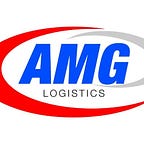International shipping abbreviations
International shipping abbreviations & terms
What comes to mind when you hear the shipping industry abbreviation C.O.D.?
At first glance, it appears to be “cash on delivery” or a “certificate of something,” but nothing could be further from the truth.
While it is not necessary to learn all international shipping terms unless you own an international shipping company, it would be beneficial to understand one or two terminologies as a customer of logistics services, as they play a critical role for everyone involved in the shipping process.
COD: This simply means (Change of Destination). This is a request asking a container ship that has already been loaded with goods and heading to a particular destination, to discharge a container and transport the goods to a different destination.
DM: This means (Demurrage). When containers are discharged, there is a free period within which they will be stored in the port. When this free period elapses and you haven’t picked up the containers, you will be required by the container line to pay a fee. This fee is known as demurrage.
Incoterms: (International Commercial Terms). Incoterms are a series of predefined commercial terms intended to communicate the costs, risks, and tasks associated with the transportation and delivery of goods. These terms were published by the International Chamber of Commerce, and you may view them here https://amglogistic.com/incoterms/
Bill of Lading: This is a legal document issued by a carrier to a shipper, with such details of the shipment as the type and quantity of goods, the freight rate, and the destination of the shipment. It is a form of agreement that serves as a shipment receipt, which helps guarantee that importers receive their goods and exporters receive their payment.
CYCY: This is short for (Container Yard to Container Yard). A container yard is a facility in which containers are stored before they are loaded onto a ship or after they have been discharged from a ship. This CYCY is a term that explains that the responsibility of the carrier begins and ends at the container yard, it begins at the Port of loading and ends at the Port of discharge.
DT: (Detention). This is a fee that you pay when you have picked up your imported containers but did not return them to the shipping line in time. You will be required to pay for the extra number of days that the containers remained in your possession.
FCL: This is short for (Full Container Load), which simply means you have enough goods to stuff an entire container. This is for big businesses with a large volume of goods.
LCL: This is basically the opposite of FCL. It means Less than Container Load, and this means you don’t have enough goods to fill up an entire container. This is beneficial to small and medium businesses that don’t have large volumes of goods. The consignment will be shipped together with other consignments in the same container and separated at the Port of destination.
Rollover: This is when a container didn’t make the vessel and was not loaded onto the ship. This may happen as a result of vessel omissions, customs problems, or overbooking. This sometimes happens; when it does, the carrier will have to reschedule the shipment and place the container on the next ship.
Port Storage: This term is self-explanatory. When containers are discharged from a ship, they are stored on the port, in a container yard. A free period of storage is provided by the port, within which you get to sort out customers clearance procedures and move your goods. Lack of space at the port can lead to port congestion, which will most definitely affect productivity. Therefore, it is important to clear your goods on time. If you delay so much in clearing and moving your goods, the port may charge you for port storage.
Aggregate shipment: These are multiple shipments from different sellers to a single consignee. They are consolidated by the carrier into a single shipment.
Stuffing & Stripping: Stuffing is the process of loading a container with loose goods before they are shipped. Stripping, on the other hand, is the process of unloading a container when it arrives at the port.
AWB: This is short for (Airwaybill). This is a contract for carriage that controls the routing of an exporter’s cargo while it is in the hands of the air carrier or a consolidator.
These few terms should equip you with some basic shipping knowledge. This way, when you hear them or see them on a document, you know just what they mean!
If you would like to familiarise yourself with more logistics definitions and terms, you can check them out here: https://amglogistic.com/logistics-definitions-and-terms/
Share this post:
Share on linkedin
LinkedIn
Share on facebook
Facebook
Share on twitter
Twitter
Share on pinterest
Pinterest
Share on tumblr
Tumblr
AMG Logistics is a Lagos-based TRACE certified logistics company. Our services include Freight Forwarding, Customs Clearance, Trucking, Distribution, and Warehousing within Nigeria.
CONTACT US
Tel: +234 909 199 9866
sales.nigeria@amglogistics.com
+234 909 199 9866
customer.services@amglogistics.com
+234 909 199 9841
cs.abuja@amglogistics.com
+234 909 199 9805
documentation.department@amglogistics.com
+234 909 199 9813
AMG Logistics Locations
HEAD OFFICE
7c Creek Road
Apapa
Lagos
ABUJA BRANCH
B3 ground floor
84 Keane Nkrumah Street
Asokoro Business & Lifestyle centre
Abuja
PORT HARCOURT BRANCH
NAMA Admin Building
Port Harcourt International Airport
Omagwa
River State
LET US CONTACT YOU
CONTACT US NOW
